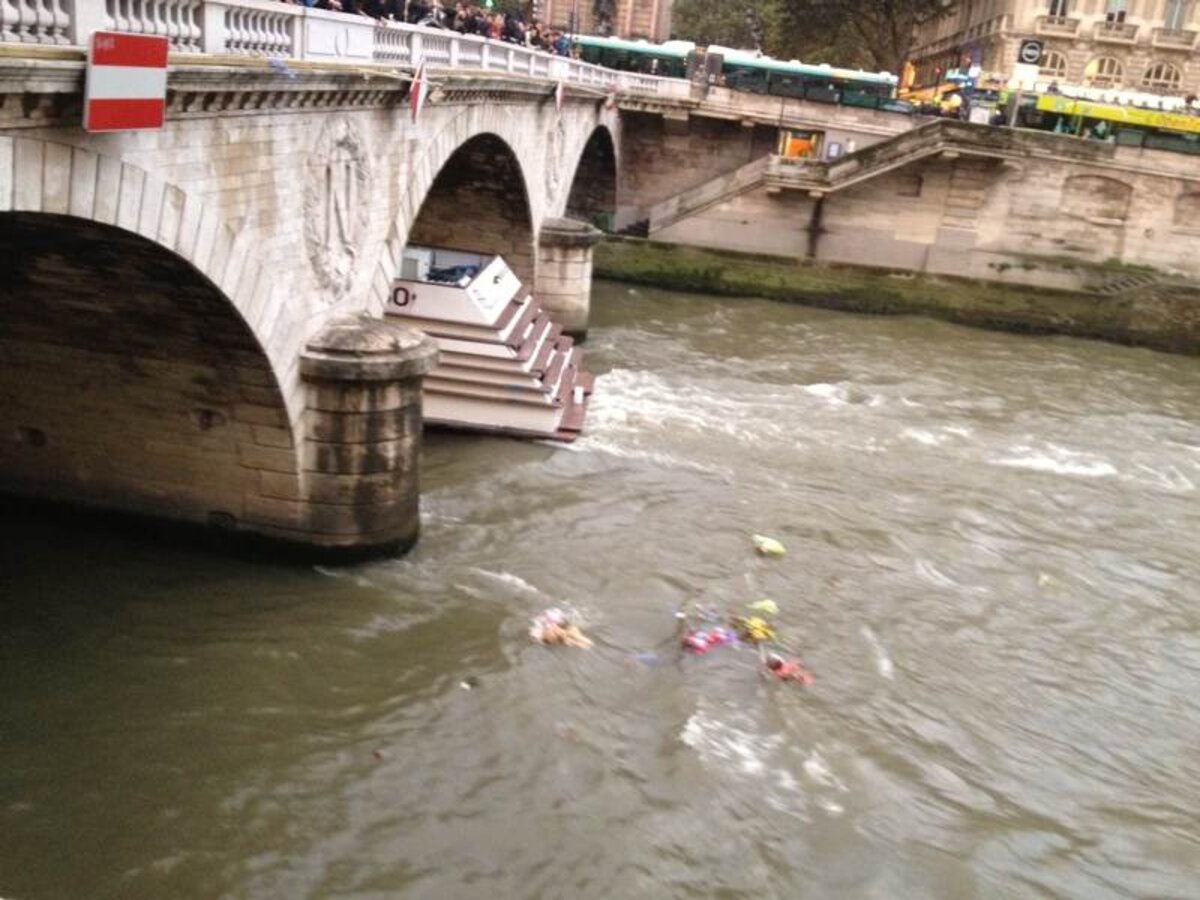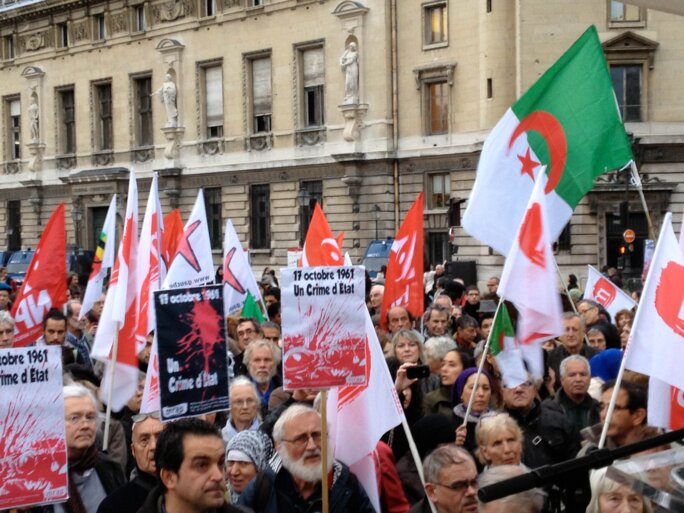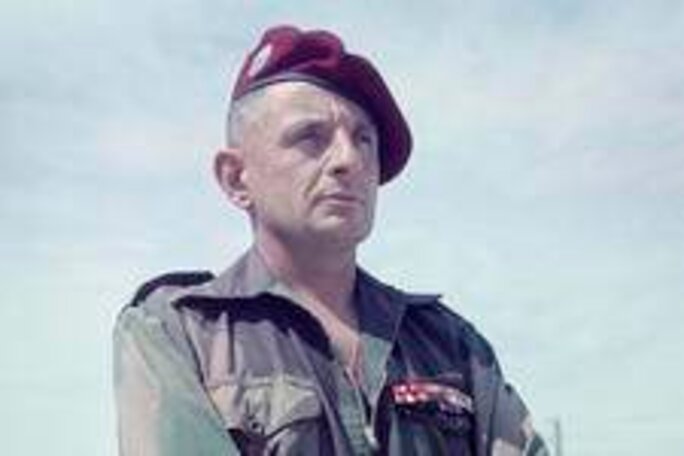French President François Hollande has ended more than 50 years of official silence over the massacre by Paris police of an estimated several hundred Algerians demonstrating for their country’s independence from France.
“On October 17th 1961, Algerians demonstrating for the right to independence were killed during a bloody repression,” read a statement by Hollande issued on Wednesday, on the 51st anniversary of the massacre. “France recognizes these events with lucidity. Fifty one years after this tragedy, I pay homage to the memory of the victims.”
It was the first public recognition by a French president of the killings which began after Paris police chief Maurice Papon – later convicted in 1998 for his role in the WWII deportation of Jews from German-occupied France - ordered a crackdown on the demonstration (see Mediapart's article on the events here).
The peaceful demonstration through the French capital, protesting against a curfew imposed on the Algerian community in Paris, was organised just months before Algeria would finally achieve independence from France, after a bloody war that began in 1954.
The hate and tensions created by the war were then at a flashpoint, and the ease with which the savagery of the police actions that evening has been overlooked almost beggars belief.
The official toll has until now remained at two demonstrators dead from gunshot wounds and several dozen injured among both demonstrators and police. The reality, established by numerous witness accounts, was very different; hundreds died, drowned after they were thrown into the river Seine, others beaten senseless under police batons.

Enlargement : Illustration 1

The police operation on Papon's orders was redolent of the anti-Semitic methods used by the WWII collaborationist Vichy regime he previously served as prefect. Of those demonstrators detained by police, some were released, some were expelled to camps in Algeria, others remained missing.
Historian Jean-Luc Einaudi has estimated the events of October 17th 1961 left about 300 Algerians dead. When the ceasefire agreement was finally signed in March 1962, there were 62 cases pending of Algerians missing since that night. But the agreement provided for an amnesty and all the cases were closed.
Hollande had pledged, shortly after he won last autumn’s primaries to become the Socialist Party’s presidential candidate, that if elected he would make the move to recognise the tragedy, and he was one of the signatories of an online petition calling for an official recognition of the massacre published last year by Mediapart in association with Au Nom de la Mémoire (‘In the Name of Memory’), an association created by relatives of the participants of the demonstration. The move comes ahead of a state visit Hollande is due to make to Algeria in December.
But the timing of his announcement, however obvious, was officially kept secret until the very last minute. It even caught the Socialist Party acting First Secretary, Harlem Désir, by surprise, after he had earlier in the day issued a communiqué calling for the events of October 1961 to be recognised. “Nobody gives a damn,” lamented historian Benjamin Stora, a university professor and an internationally prominent researcher and writer on Algerian history, speaking on Wednesday before Hollande’s statement was announced. “That shows the gap between what is France today and the worlds of politics and culture, media included.”
During the day, an organization campaigning for the recognition of the massacre, the Collectif pour la reconnaissance du 17 octobre 61 had even sent a delegation to the presidential offices of the Elysée Palace, where they were turned away and told to address themselves to the nearby interior ministry.
“It is a first step, but a very important first step,” commented documentary maker Mehdi Lalloui, a leading campaigner for official recognition of the events and president of the association Au Nom de la Mémoire. He was speaking just before attending the yearly commemoration of the events held by campaigners at the Saint-Michel bridge, in the Latin Quarter, scene of the October 17th 1961 demonstration.“This statement by the [French] President will allow us to open a new page about the [independence] war in Algeria and [also] a path towards a true reconciliation, something that was impossible with the omissions and silence," he added. “For us, it is a victory.”
'A colonialist past with tragic consequences'
However, the leading conservative opposition party, the UMP, deplored Hollande’s “intolerable” move. “While there is no question of denying the events of October 17th 1961 nor of forgetting the victims, it is intolerable to call into question the [role of the] police and, with it, the whole of the [French] republic,” complained the leader of the UMP parliamentary group, Christian Jacob. He denounced a politicization of history that “is dangerous for national cohesion”.

Enlargement : Illustration 2

The political controversy is set to continue in parliament. Beginning next week, the Senate, the Left-dominated upper house of parliament, is to debate a motion tabled by the Communist Party group calling for the erection of a memorial to the victims. The motion, to be debated on October 23rd, is likely to be passed after the Socialist Party (PS) senators indicated their support. “In principle, we’ll vote for it,” commented PS senator Alain Néri.
The Senate is also to debate a proposed law that will create a yearly day of “remembrance” for all civil and military victims of the Algerian War of Independence, chosen as March 19th, the date when a ceasefire between the French military and Algerian independence forces was proclaimed in 1962.
These different parliamentary initiatives highlight what until now has been an official denial of the various tragic events of the Algerian War of Independence, a political boil which Hollande is apparently keen to lance.
The only official move for a day of remembrance of sorts was made in 2003, when then-President Jacques Chirac declared December 5th as a “national day of homage to those who died for France in North Africa”. However, the date related to no historic event, and was simply the day when Chirac’s busy agenda could be freed up to allow him to inaugurate a plaque to the French dead in central Paris. “It could just as well have been December 4th or the 6th,” commented, at the time, Chirac’s Secretary of State for War Veterans, Hamlaoui Mekachera, to the fury of French North Africa veterans’ associations.
“For too long, the Algerian War was a war without a name or date,” commented socialist Senator Alain Néri. “It was [a government of] the Left that gave it a name by officially recognizing the Algerian War in a law promulgated on October 18th 1999. But ever since then, it remained without any commemorative date.”
Communist senators Guy Fischer and Nicole Bovo have been leading campaigners in the upper house for an official recognition by France of the deaths and suffering of the Algerian War. “We have at heart to underline the necessity for our country to engage itself on a path of recognition of its colonial past and the tragic consequences that resulted from it,” Fischer wrote in a letter to Hollande dated July 18th. “Our argument is, of course, applicable to all the former French colonies, but in this year of the fiftieth anniversary of the end of the Algerian war, it appears to us particularly symbolic that our country accepts at last to look its past in the face, to fully assume its responsibilities towards the Algerian people.”
Fischer concluded that "to at last ease the pain of all the civil and military victims, that of their families [and] to redefine healthy relations with the people and government of Algeria, it is today as indispensable as it is urgent that the responsibilities are defined, and assumed.”
In his reply to Fischer, dated August 2nd, Hollande wrote: “This war, responsible for so many deaths and so much human tragedy on both sides, was only recognised as such by the government of [former socialist Prime Minister] Lionel Jospin, which thus opened up the path for an official recognition by France of its historical responsibility the colonial drama. This work of remembrance must continue, in France as in Algeria. During my mandate I intend to develop this important effort for reconciliation between France and Algeria. It is necessary to re-found relations between our two countries [based] on a new partnership that could be concretised, if Algeria so wishes, by a large friendship treaty.”
'Supple as leather and hard as steel'
Meanwhile, before Hollande’s state visit to Algeria in December, his efforts to address the dark side of France’s colonial past are likely to be muddied by an official ceremony next month in honour of a man many regard as a symbol of France’s military repression of independence movements among its former colonies. On November 20th, French defence minister Jean-Yves Le Drian is due to attend the inauguration in Fréjus, southern France, of a monument, at the town’s Memorial to the Indochina Wars, and which will contain the ashes of French General Marcel Bigeard.

The general, who died in 2010 aged 94, was one of the French army’s most decorated soldiers, and one of its most controversial figures. A WWII Resistance hero, a veteran of France’s Indochina campaign and the battle of Diên Biên Phu, Bigeard led a parachute regiment during the Algerian War of Independence, and was notably involved in the bloody Battle of Algiers in 1957. He dismissed the torture of independence fighters by the French army – and of which his own unit was accused - as “a necessary evil”, and while denying he was ever personally involved in torture he proclaimed: “I regret nothing. We were faced with an impossible situation”.
The ceremony on November 20th is timed to coincide with the anniversary of the launch in 1953 of ‘Operation Castor’, when Bigeard’s unit set up a fortified air base in Dien Bien Province in what ultimately turned into a disastrous French campaign against the Viet Minh communist independence guerilla movement.
A spokesperson for the French defence minister, who is a close political ally of François Hollande, said the ceremony was “not a political homage but a homage of remembrance”. The event has met with criticism from a number of socialist MPs. “I don’t see this as opportune,” commented one, Mathieu Hanotin, while his colleague Pouria Amirshahi, a senior party figure who represents a constituency created for French overseas citizens living in North and West Africa, said the move left him “speechless”.
In its page dedicated to the November inauguration, the ministry’s website offers no comment on the controversial aspects of Bigeard’s career. “Much more than a chief, General Bigeard was a leader of men,” it reads. “He to whom people naturally turn in the most difficult moments […] He who teaches that in order ‘to be and to last enduringly’ one must be as supple as leather and as hard as steel”.
-------------------------
English version: Graham Tearse


